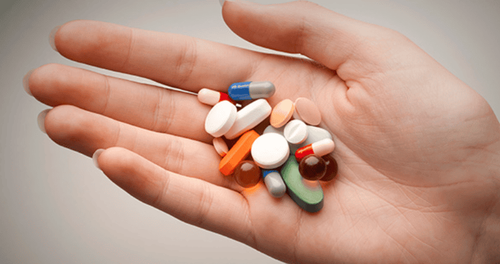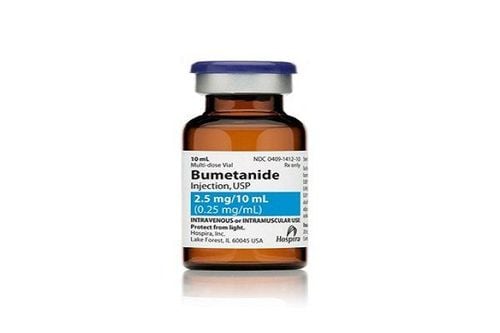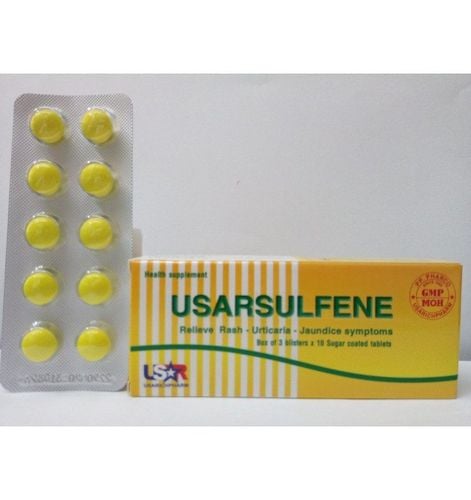This is an automatically translated article.
The article was professionally consulted by Pharmacist Nguyen Thi Linh - Faculty of Pharmacy - Vinmec Danang International General Hospital.Diuretics or diuretics are drugs commonly used in the treatment of cardiovascular disease. Currently, diuretics are divided into three groups, each with different mechanisms and effects.
1. What is a diuretic?
This is a drug that increases the excretion of salt and water in the kidneys, reducing the amount of water in the circulatory system as well as water in the intercellular spaces. Diuretics can be divided into 3 main groups:
1.1 Thiazide diuretics This is a group of diuretics commonly used in combination with other classes of drugs in the treatment of hypertension. This group of diuretics has a moderate diuretic effect, so it does not cause hypotension when used.
Commonly used diuretics in this group include:
Hydrochlothiazide Chlorothiazide Methylchlorothiazide Indapamide. 1.2 Group of diuretics acting on the loops of Henle (loop diuretics) This is a group of diuretics with strong diuretic effects, causing sodium loss faster than other diuretics, so they are often indicated in cases of heart failure and severe edema.
Commonly used diuretics in this class include:
Torsemide Furosemide Bumetanide Ethacrynic acid.
1.3 Group of potassium-sparing diuretics The diuretic effect of this group is weaker than that of the two groups mentioned above, but due to its ability to retain potassium, it is often combined with drugs of the thiazide group or loop diuretics of Henle.
This group of diuretics works to reduce fluid volume without losing potassium in the body. This medication is usually prescribed for people with low blood potassium levels. Potassium-sparing diuretics include:
Amiloride Spironolactone Triamterene Eplerenone. In addition to the three groups of diuretics mentioned above, there are also a number of other groups of diuretics commonly used in special cases such as: Osmotic diuretics (manitol, glycerin) are indicated in cardiac surgery, neurosurgery and surgery. ophthalmic surgery, carbonic anhydrase inhibitor diuretics (acetazolamide) used in the treatment of glaucoma.
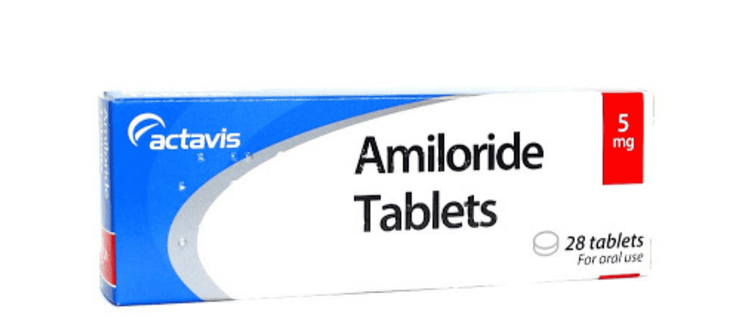
Thuốc Amiloride - thuốc lợi tiểu tiết kiệm kali
2. Undesirable effects of diuretics
Some common undesirable effects of diuretics include:
Lowering blood potassium levels (except for potassium-sparing diuretics) Increasing blood potassium levels (for potassium-sparing diuretics) Causing a decrease in sodium levels in the blood Low blood pressure Headache, dizziness, lightheadedness Dehydration Increased blood sugar Muscle spasms Increased cholesterol Allergies, skin rashes Diarrhea. In addition, you may experience particularly serious undesirable effects such as:
Allergic reactions of the body Renal failure Heart rhythm disturbances .

Tác dụng phụ của thuốc gây đau đầu
3. When to take a diuretic?
Diuretics are often indicated in the following cases:
3.1 Treatment of hypertension Diuretics increase urine output, reducing the amount of water in the body thereby lowering blood pressure. The drug is often used in combination with other antihypertensive drugs to ensure effective treatment.
3.2 Treatment of heart failure Diuretics reduce swelling and fluid accumulation (in the lungs) due to the effects of heart failure.
3.3 In case of edema Diuretics help to enhance the ability to eliminate stagnant water in the body due to diseases of the lungs (pulmonary edema), liver (cirrhosis), kidneys (nephrotic syndrome).
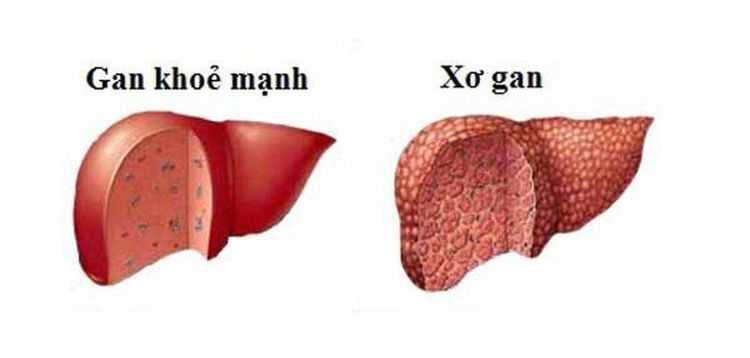
Người bệnh xơ gan có thể gặp triệu chứng phù khi sử dụng thuốc lợi tiểu
4. Note when using diuretics
During treatment, you need to absolutely follow the course of drug use prescribed by a specialist, do not arbitrarily stop or quit halfway right after reducing symptoms of the disease. When you are being treated with diuretics, you should not arbitrarily take other drugs at the same time without consulting the treating doctor or inform the treating doctor clearly about the drugs you are taking when prescribed diuretics. urine for the doctor to prescribe the appropriate medication. The most commonly used diuretics (thiazides and loops of Henle) have a sodium-reducing effect and decrease potassium levels. Meanwhile, potassium plays an important role in heart contraction and maintaining good health. Therefore, when treating with diuretics, you should eat a lot of bananas, drink a lot of orange juice to be supplemented with potassium. When taking diuretics but having symptoms of muscle spasms, cramps, muscle weakness, fatigue, excessive thirst, restlessness, rapid pulse, you must immediately go to medical facilities to promptly deal with the loss of potassium due to the use of diuretics. diuretic.

Người bệnh cần được thăm khám và sử dụng thuốc theo đơn của bác sĩ
Please dial HOTLINE for more information or register for an appointment HERE. Download MyVinmec app to make appointments faster and to manage your bookings easily.





